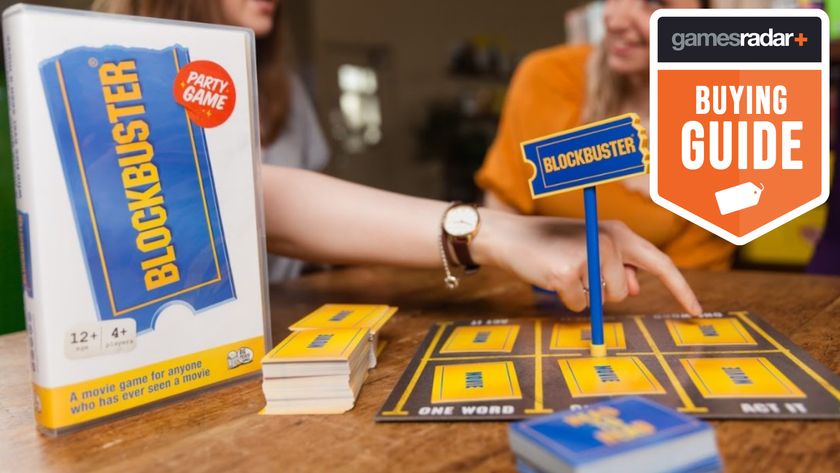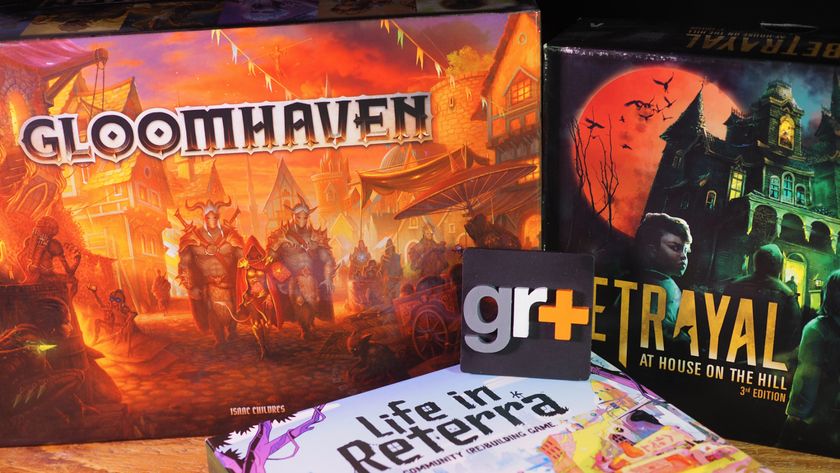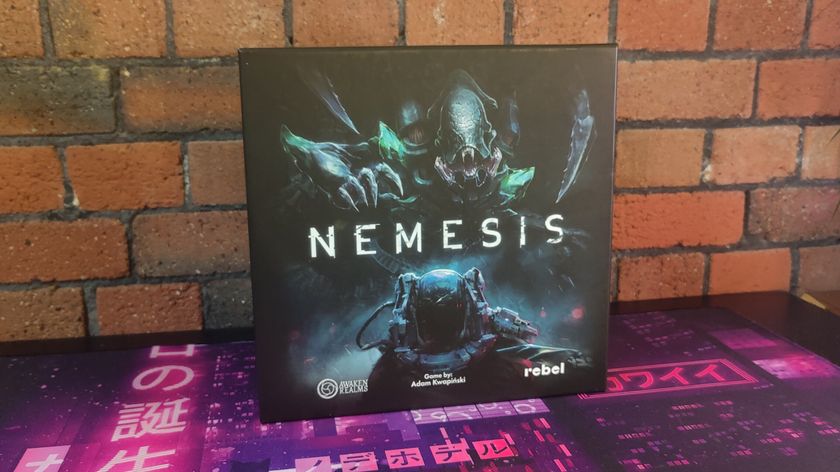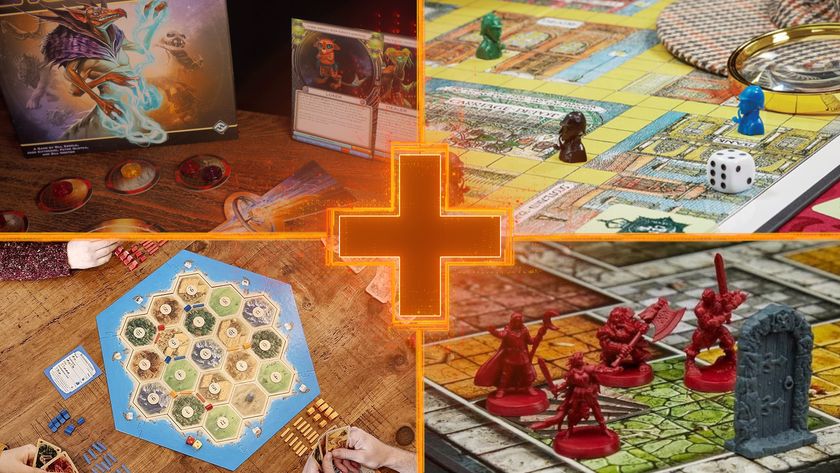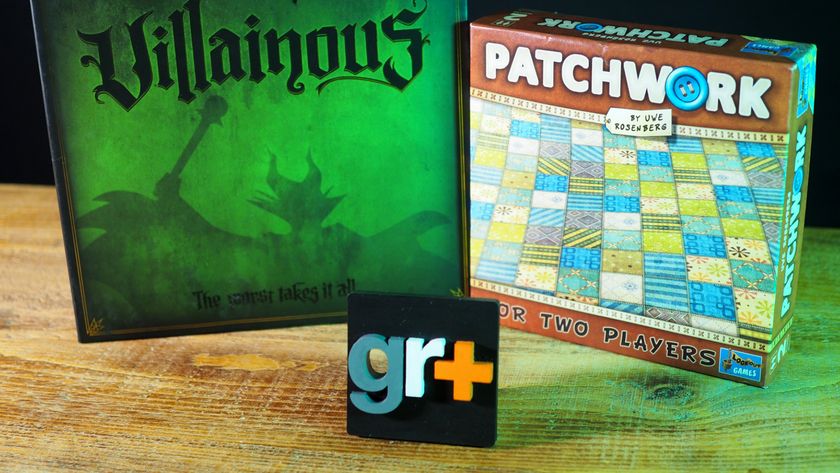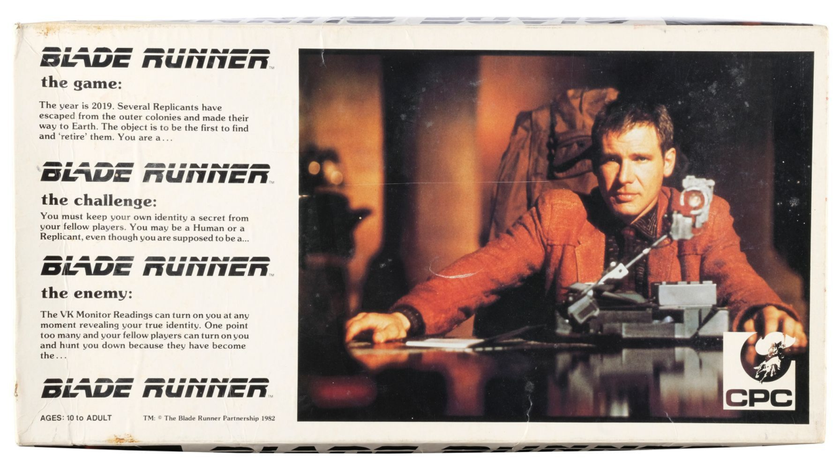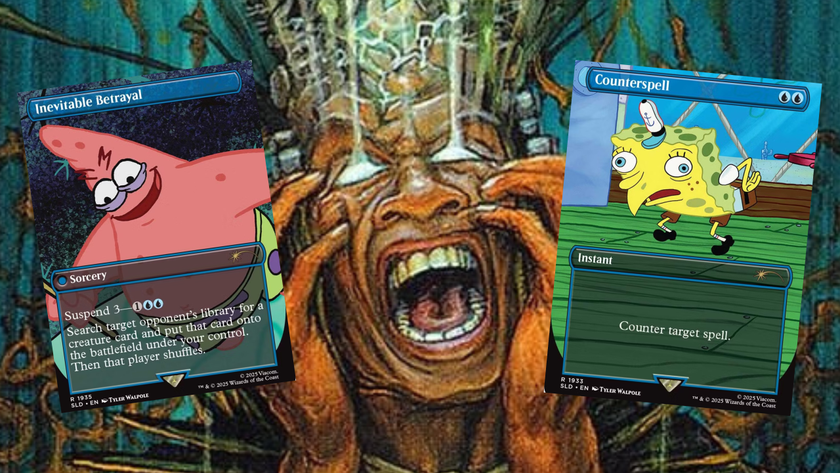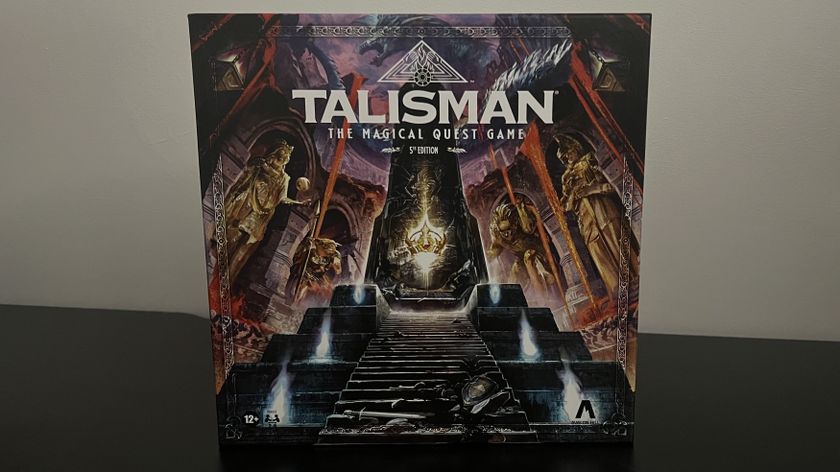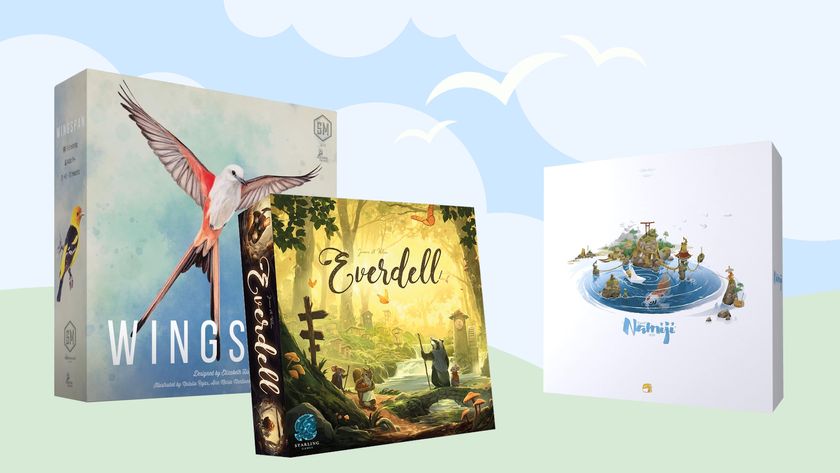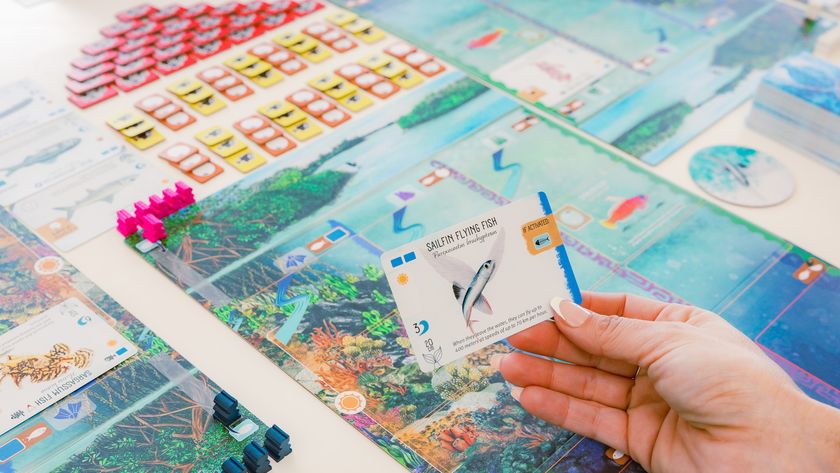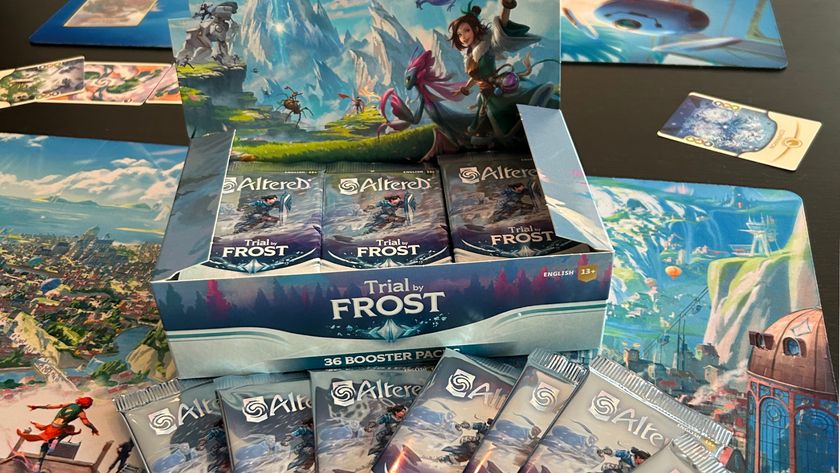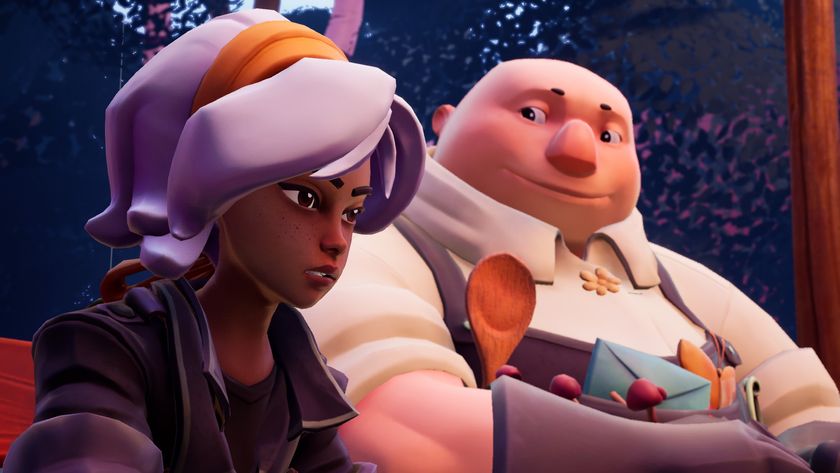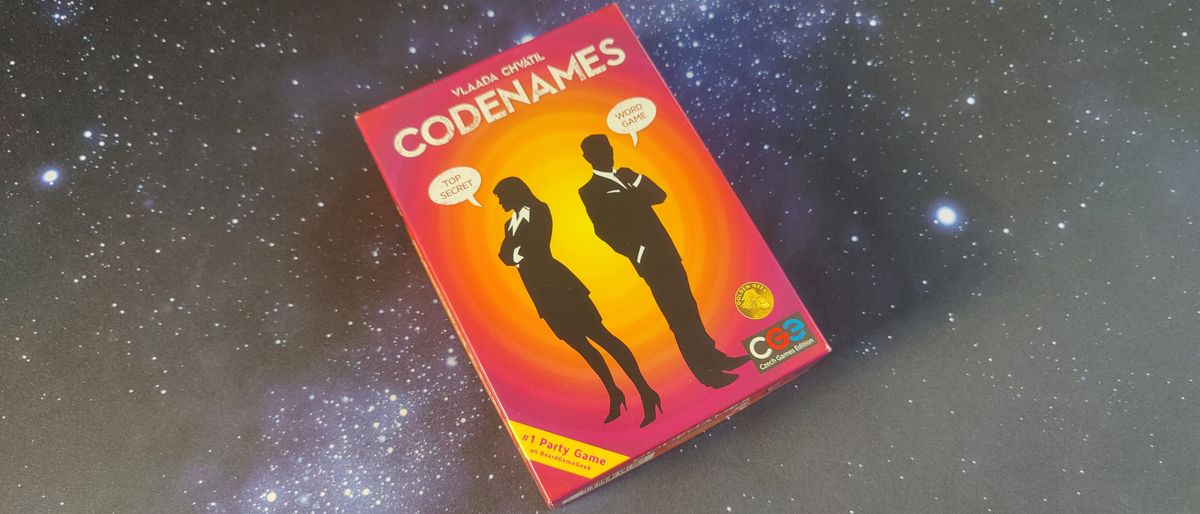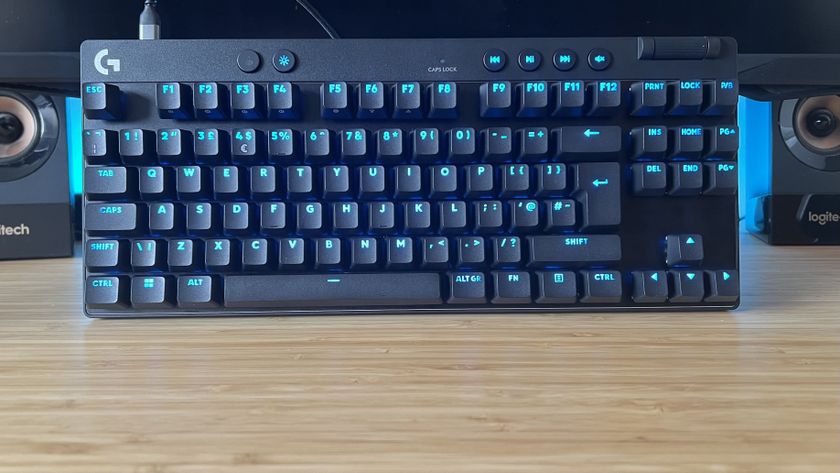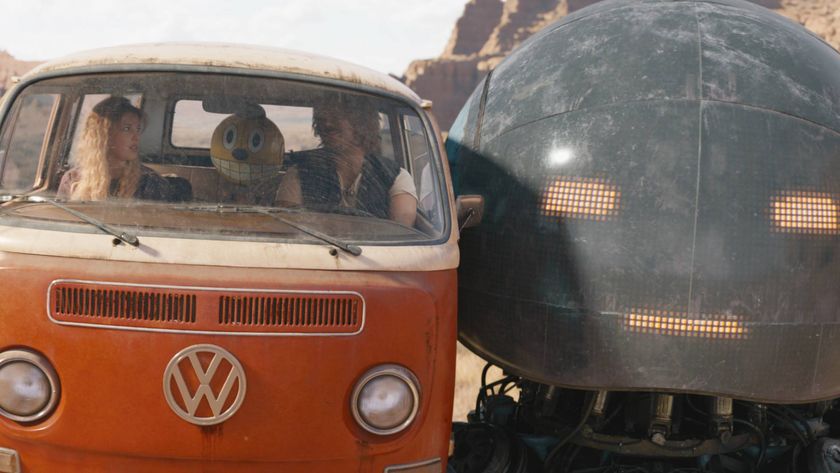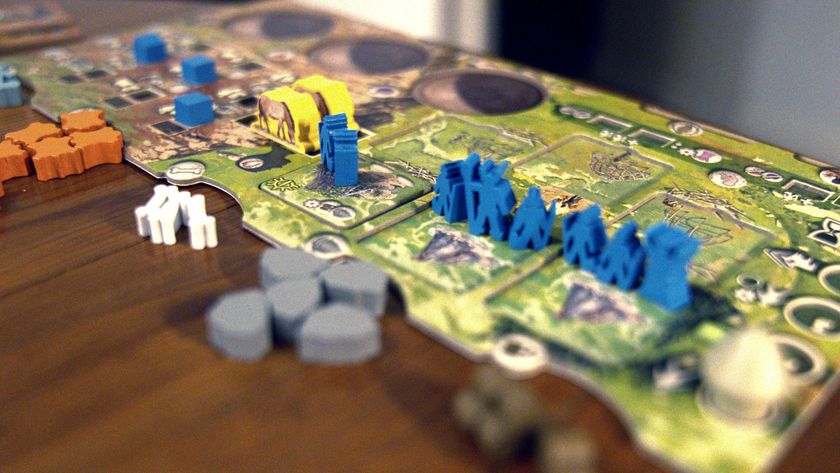12DOVE Verdict
Codenames is the quintessential party game. It’s easy for new players to pick up while offering enough depth and strategy for experienced board gamers to sink their teeth into.
Pros
- +
Accessible and easy to learn
- +
Encourages social interaction
- +
Surprising depth
- +
Unbeatable as a party game
Cons
- -
Requires at least 4 people to be good
Why you can trust 12DOVE
Have you ever wanted to be a spy? No, me neither — I've got no interest in getting shot at, or whatever was happening in that chair scene from Casino Royale. But, if you want to do a little 007-style code breaking without the nut cracking, then Codenames is the game for you.
Your mission, if you choose to accept it — which you will, because it's awesome — is to unravel the clues given by your spymaster (the Diana Burnwood to your Agent 47). You and your team will need to identify all of your agents by their Codenames before the opposing team finds theirs. Oh, and watch out for the Assassin lurking on the board, because if you accidentally reveal them, then it's game over.
If you've been to any sort of nerdy party or gathering, you've almost certainly already played a round or two of Codenames — it's THE party game of choice and one of the best board games out there for large groups. That's partially down to the simple word-association concept that anyone can pick up, but mostly because it acts as a fantastic social lubricant. It gets people talking and, more importantly, the clues they give and guesses they make reveal a little something about how their brains work.
Features & design
- Find agents using word associations
- Avoid the Assassin
- Take it in turns to guess
At its core, Codenames has very few components. Inside the box, you'll find 25 colored agent cards, 40 key cards, 200 double-sided codename cards, a card stand, a sand timer (optional in-game), and the rulebook. There’s even a QR code that’ll take you to a rules overview video.
The premise is equally simple. Assemble a group of two to eight players and split into two teams (red and blue). Each team then chooses a spymaster, who will be responsible for giving out clues to the rest of the operatives on their team.
You then build the game board, which consists of 25 codename cards arranged into a 5 x 5 grid. The spymasters then draw a key card — effectively a map that tells them where their agents are hiding on the grid, interspersed with neutral bystanders (the beige cards) and a deadly assassin (the black card).
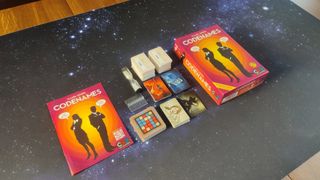
The spymasters' aim is to give their operatives clues that lead them to words on the board that match their team's color on the key card. They do this by giving out a single word clue every turn, along with a number which lets the agents know how many cards this clue links. For example, the spymaster might say "Superhero: Two" and your team will have to work together and scan the board for words that match that description.
Players aren't forced to guess that number of cards, so if they're unsure they can pass after a single guess, or they can even go rogue and guess more than the spymaster has said… a maneuver that usually ends in disaster.
When your team is done guessing, you pass to your opponents and keep going until one team finds all of their agents… or runs into the assassin. A single card on the key will be marked in black, and if either spymaster accidentally steers their team towards guessing that card, their team instantly loses the game.
Gameplay
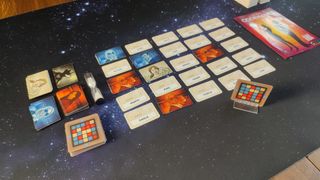
- A tricky, compelling balancing act
- Surprising depth for such a simple premise
- Better with more players
Despite the simple mechanics, Codenames offers a ton of depth in terms of how you choose to play. As the spymaster, do you play it safe by giving an obvious clue to a single agent? Or do you offer up an obscure connection to four agents at once and expect your team to latch onto the bizarre train of logic that you're riding?
Let's say you're the blue spymaster, and the words "desk" and "chair" are on the board in your color; "office" would be a great clue, but oh no, the assassin is sitting on the word "computer." You'd be taking a huge risk giving that clue, so you'll need to think outside the box. Maybe "furniture" would be the better clue? Now make that scenario way more complicated, because there are 25 words on the board that might interact with each other and you begin to see how chaotic and mind-melting this game can be.
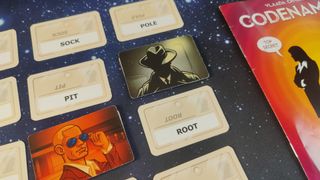
In an interview with The Guardian, Codenames creator Vlaada Chvátil said that the game is "about people trying to understand people." Despite having won prestigious awards and sold countless copies, it came from humble beginnings which speak to how compelling the concept is; when he first created the idea, Chvátil says that he "tore the paper up with my hands – I didn’t even have scissors. That version is almost the same as now."
The rules to Codenames are terrifically well-balanced. The team going first has to hit an extra clue to make up for the advantage, and beyond that, both teams have the exact same moves at their disposal. There is no luck beyond getting stuck with teammates who don't get your obscure references. People who know each other well can have an advantage over strangers, which is why it's recommended that you shake up the teams between rounds, while also changing who takes on the role of spymaster to keep things fresh.
Another cool thing about the rules is that you can be as firm or flexible with them as you like. As long as everyone playing agrees, you can allow rhyming words as a clue (although you're not allowed to indicate that it's a rhyme, players will have to work that out by themselves), acronyms like CIA (technically it's not one word), or even proper names such as New York or Lara Croft.
Should you buy Codenames?
| Gameplay | Codename's mechanics are deceptive; they seem straightforward, but are gloriously mind-bending in practice. | 5/5 |
| Accessibility | This is one of the easier games to get your head around, so is ideal for parties no matter how much experience the players have. | 5/5 |
| Replayability | Thanks to the wealth of cards and the endless connections different people will dream up, Codenames doesn't have a sell-by date. | 5/5 |
| Setup and pack-down | Although you'll need to set up the 5x5 grid and potentially change seats between games if you're the spymaster, it's no fuss on the whole. | 4/5 |
| Component quality | Codenames isn't ostentatious, but it doesn't need to be. It nails the espionage aesthetic, and our only complaint is that the cards can be easily lost or bent. | 4/5 |
If you're looking for a fun, casual party game that just about anyone can enjoy then Codenames should be top of your list. It's super friendly to new players, while the randomized layouts and teams mean that it offers a ton of replayability too.
There are tons of variants of Codenames to choose from, including Disney, Marvel, and even a more adult “Deep Undercover” version if you want to tailor the clues to your interests.
Buy it if...
✅ You like big group party games
Codenames is a "more the merrier" sort of game that works best with a full roster of players.
✅ You like getting into other people's heads
As Homer Simpson once said, "In order to find Flanders, I need to think like Flanders!" Figuring out the wavelength that your teammates are working on and capitalizing on that is key to Codenames, and what makes it so rewarding.
Don't buy it if...
❌ You don't like big group board games
You can technically play Codenames with just two players, but you want at least four people, and it's at its best with eight.
How we tested Codenames
Disclaimer
This review was made using a copy of the game our writer purchased themselves.
This is a game that has been in my collection for a long time now. I’ve played with large groups, small groups, close friends, friends of friends, and even strangers at board game gatherings. I’m basically Agent Cody Banks at this point!
For a more thorough look at our process, see this guide to how we test board games, or the wider 12DOVE reviews policy.
Want recommendations of what to play next? Don't miss the best 2-player board games, or these must-have board games for adults.

Ian Stokes is an experienced writer and journalist. You'll see his words on 12DOVE from time to time, and he works as Entertainment Editor at our sister site Space.com.
- Benjamin AbbottTabletop & Merch Editor
